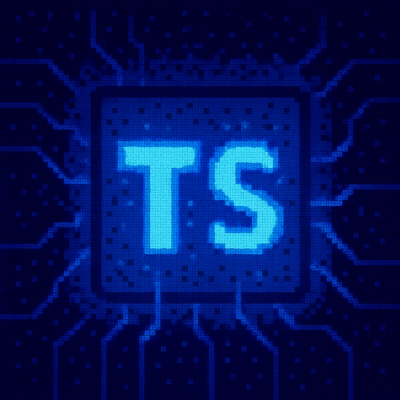
Security News
Critical Security Vulnerability in React Server Components
React disclosed a CVSS 10.0 RCE in React Server Components and is advising users to upgrade affected packages and frameworks to patched versions now.
@fileverse/heartbit-react
Advanced tools
A plug-and-play integration of the HeartBit SDK, which is a wrapper around HeartBitCore.
HeartBits are provable, time-based onchain “Likes” that can be generated by simply engaging with your app, website, onchain media, Frame or OpenAction on Farcaster and Lens protocols!
You can install using npm or yarn:
npm install --save @fileverse/heartbit-react
// or
yarn add @fileverse/heartbit-react
Import the core component of the package HeartBit:
import { HeartBit } from "@fileverse/heartbit-react";
First of all, you want to set up your wallet providers. For this example, we will be using the BrowserProvider from ethers as our provider. We will create a React component that will render HeartBit, and we are going to configure the network by passing the coreOption as props to it. It requires the getSignatureArgsHook as props as well, which it calls internally to get the message, signature, and optionally an onMintCallback, a function that will be called after mint is completed. We would also define hash that will be used for generating the tokenId on the smart contract generally use ipfs hash here for eg: ipfs://cid, and we will use SIWE for generating the message and signature. The code below should do the trick:
const MyApp = () => {
const provider = new BrowserProvider((window as any).ethereum);
const coreOptions = {
chain: "0xaa36a7" as SupportedChain
}
const getSignatureArgsHook = async () => {
const signer = await provider.getSigner()
const address = await signer.getAddress();
const siweMessage = new SiweMessage({
domain: window.location.host,
address,
statement: "Hello World!",
uri: window.location.origin,
version: "1",
});
const message = siweMessage.prepareMessage();
const signature = await signer.signMessage(message);
return {
message,
signature,
onMintCallback: () => {
console.log("Minted!")
}
};
};
const hash = "ipfs//cid"; // This is an identifier for the token, if this hash changes you mint a new token in that case
return <HeartBit
coreOptions={coreOptions}
getSignatureArgsHook={getSignatureArgsHook}
hash={hash}
/>;
}
If all the process was successful, you should see a heart on your screen, and when you click and hold it for long, it should fill up. Once released, some NFTs related to the amount of time spent on clicking the button will be minted to the user.
Here is a working example using HeartBit.
You can attach the HeartBit functionality to any UI component and instead of being restricted by our default heart icon. To achieve this, the heartbit-react package exports HeartBitProvider and useHeartBit. The HeartBitProvider is used to configure the core package with the coreOptions, and useHeartBit exposes the core functions of the HeartBit SDK, which we can call in a React component. Note that it can only be used in the context of HeartBitProvider.
import { useState, useEffect } from 'react'
import { HeartBitProvider } from "@fileverse/heartbit-react"
const MyApp = () => {
const coreOptions = {
chain: "0xaa36a7" as SupportedChain
}
return (
<HeartBitProvider coreOptions={coreOptions}>
<CustomHeartBit />
</HeartBitProvider>
)
const CustomHearBit = () => {
const { mintHeartBit, getTotalHeartMintsByUser, getTotalHeartBitByHash } = useHeartBit()
const [startTime, setStartTime] = useState<number | null>(null) // should be in seconds
const account = '0x...someaddress'
const hash = 'ipfs://cid' // This is an identifier for the token, if this hash changes you mint a new token eg: ipfs://cid
useEffect(() => {
const fetchBalances = async () => {
const totalMintsByHash = await getTotalHeartBitByHash({ hash }); // Total Supply for a hash
const totalMintsByUser = await getTotalHeartMintsByUser({ account, hash }); // Total mints for a user by hash
console.log({ totalMintsByHash, totalMintsByUser})
}
fetchBalances()
}, []);
const onMouseDown = () => {
setStartTime(Math.floor(Date.now() / 1000))
}
const onMouseUp = async () => {
const endTime = Math.floor(Date.now() / 1000);
await mintHeartBit({
startTime,
endTime,
hash, // This is an identifier for the token, if this hash changes you mint a new token. eg: ipfs://cid
message, // raw message that was signed
signature, // signed message
})
}
return <button onMouseUp={onMouseUp} onMouseDown={onMouseDown}>Hello World</button>
}
Here is a working example using the HeartBitProvider and useHeartBit.
interface SignatureArgs {
message: string;
signature: string;
onMintCallback?: () => void; // will be called after NFT minting is done
}
interface HeartBitProps
extends Omit<HeartBitUIProps, "isDisabled" | "startFillPos"> {
coreOptions: HeartBitCoreOptions;
getSignatureArgsHook: () => Promise<SignatureArgs>; // this is a required hook, this allows to call sign message operation on the user wallet, must return SignatureArgs
hash: string; // This is an identifier for the token, if this hash changes you mint a new token. eg: ipfs://cid
account?: string; // user wallet address
showTotalMintsByHash?: boolean; // Default to false, if true will show total mints for a hash to the right of component
showTotalMintsByUser?: boolean; // Defaults to false, if true will show total mints by a user on a hash to right of the component
}
type SupportedChain = "0xaa36a7" | "0x2105" | "0x64";
interface HeartBitCoreOptions {
chain: SupportedChain;
rpcUrl?: string;
}
interface HeartBitProviderProps {
children: React.ReactNode;
coreOptions: HeartBitCoreOptions;
}
interface TotalHeartBitCountArgs {
hash: string; // This is an identifier for the token, if this hash changes you mint a new token. eg: ipfs://cid
}
interface HeartBitCountByUserArgs {
hash: string; // This is an identifier for the token, if this hash changes you mint a new token. eg: ipfs://cid
account: string; // ethereum wallet address
}
interface MintHeartBitArgs {
message: string;
signature: string;
startTime: number; // in seconds
endTime: number; // in seconds
hash: string; // This is an identifier for the token, if this hash changes you mint a new token. eg: ipfs://cid
}
interface IHeartBitContext {
getTotalHeartMintsByUser: (opts: HeartBitCountByUserArgs) => Promise<number>;
getTotalHeartBitByHash: (opts: TotalHeartBitCountArgs) => Promise<number>;
mintHeartBit: (opts: MintHeartBitArgs) => Promise<void>;
}
FAQs
## Introduction
We found that @fileverse/heartbit-react demonstrated a healthy version release cadence and project activity because the last version was released less than a year ago. It has 5 open source maintainers collaborating on the project.
Did you know?

Socket for GitHub automatically highlights issues in each pull request and monitors the health of all your open source dependencies. Discover the contents of your packages and block harmful activity before you install or update your dependencies.

Security News
React disclosed a CVSS 10.0 RCE in React Server Components and is advising users to upgrade affected packages and frameworks to patched versions now.

Research
/Security News
We spotted a wave of auto-generated “elf-*” npm packages published every two minutes from new accounts, with simple malware variants and early takedowns underway.

Security News
TypeScript 6.0 will be the last JavaScript-based major release, as the project shifts to the TypeScript 7 native toolchain with major build speedups.